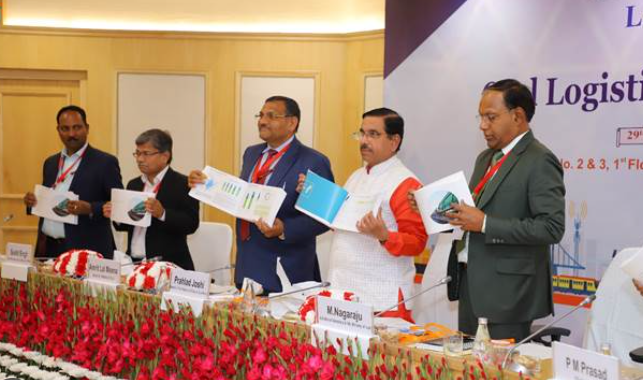India Unveils Coal Logistics Plan and Policy
On February 27th, 2024, Union Coal Minister Pralhad Joshi launched the Coal Logistics Plan and Policy at an event organized by the Indian National Committee of the World Mining Congress in New Delhi.
Need for Efficient Logistics
In his address, the Union Minister emphasized the importance of optimizing coal logistics to meet India’s escalating energy demand, projected to rise from 980 million tonnes currently to 1.5 billion tonnes by 2030.
Key Elements of the Plan
The plan outlines strategic initiatives to make coal transportation cleaner, cheaper and more efficient, especially via railway networks.
The proposals target a 14% drop in railway freight costs amounting to Rs 21,000 crore savings annually by 2030. This will be enabled by expanding first-mile rail connectivity to mines to reduce dependence on road transportation.
Environmental Benefits
The policy aims to minimize air and noise pollution alongside curbing carbon emissions by approximately 100,000 tonnes per year through increased rail transportation. Congestion relief is another advantage.
The plan also looks to cut average coal wagon turnaround time by 10% nationwide through optimized routes and terminal modernization.
Integrating Transport Modes
Stressing on integrated networks, Joshi noted the remarkable 50% growth in coastal shipping of coal using rail-sea-rail routes over the last 5 years. The ministry looks to scale this up to 120 billion tonnes by 2030.
Additionally, under the PM GatiShakti plan, 37 critical rail projects have been recognised to boost cargo capacity in the future.
New Rail Infrastructure
To plug connectivity gaps, 15 rail projects are underway of which 5 have been commissioned already. The plan envisages substantial investments into constructing new lines and upgrading existing rail infrastructure as energy corridors.
Sustainable Growth
Secretary Amrit Lal Meena reiterated the ministry’s commitment to balancing efficiency targets with sustainability through R&D, digitization and addressing logistical bottlenecks.
The comprehensive roadmap will ensure coordinated efforts between stakeholders to unlock the sector’s full economic potential in an eco-friendly manner.
Panel Discussion
An expert panel discussed opportunities to achieve coal production self-sufficiency through latest technologies that also spur greener transportation.
Investments into innovation and resolving distribution constraints were highlighted for the sector to keep fueling wider economic growth.
The launch of a forward-looking coal logistics reform plan reassures the vital role of coal in India’s energy security. Leveraging efficiency-enhancing technologies alongside collaborative action will facilitate growth ambitions aligned to sustainability goals.
Month: Current Affairs - March, 2024
Category: Government Schemes Current Affairs








